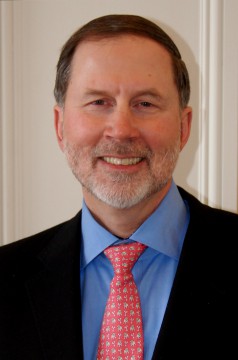A $10 million gift from an anonymous donor combined with a $5 million matching gift, also anonymous, will accelerate research aimed at finding better treatments and ultimately a cure for cystic fibrosis (CF) at the Geisel School of Medicine at Dartmouth. The gifts were made as part of Dartmouth’s “academic clusters” initiative, in which the College secured $100 million in philanthropy in 2014 and 2015 to establish 10 new interdisciplinary groups of faculty.
The CF cluster will take a personalized medicine approach to developing new therapies that can benefit all patients with CF by treating the basic genetic defect that causes the disease and by eliminating the fungal and bacterial lung infections that cause disability and death. The latest and best medications for the disease benefit only about 60% of patients with the CF, which is a devastating and often deadly respiratory illness that affects children and young adults and does not yet have a cure.

"This gift to the Dartmouth Cystic Fibrosis Program will strengthen, intensify, and expand our research efforts to identify personalized cures for every CF patient,” says Bruce Stanton, PhD, the Andrew C. Vail Professor and Director of the Dartmouth Lung Biology Center. “The generosity of these donors will benefit generations and generations of people who live with CF every day.”
Geisel’s research group is already the largest and best-funded CF research hub in the Northeast. Encompassing 24 faculty and approximately 100 investigators—including postdoctoral fellows and graduate students—the team has garnered $87 million in grants and contracts during the past four years. In addition, Geisel’s clinical partner, Dartmouth-Hitchcock, has won numerous awards for its high quality of care for patients with CF. This new influx of funding will enable Geisel to recruit additional faculty with expertise in systems biology, bioinformatics, genomics, fungal and bacterial infections, host-defense interactions in the lung, and clinical trials for CF.
“Many years from now, I think we will all look back and point to the cluster mechanism as a landmark impact on our institution,” says Duane Compton, PhD, Interim Dean of Geisel. “Not only do these funds provide for faculty support in perpetuity, but they will seed the formation of focused teams that are tackling some of the most challenging areas of medicine today.”
In 2014, Dartmouth received a $100 million gift, half of which is being used as a match toward the creation of the academic clusters. Through the end of 2015, each $10 million gift made to create a cluster received a $5 million match. Thanks to three gifts in December 2015, the goal of endowing 10 clusters was achieved in 20 months’ time. The clusters will create 30 new faculty positions at the College and its professional schools, a milestone in the pursuit of Dartmouth President Phil Hanlon’s goal of enhancing faculty and student excellence.
Geisel faculty will play a critical role in several other clusters, too, including those focused on neuroscience and health care delivery.